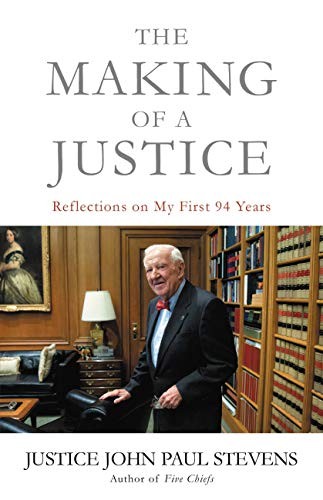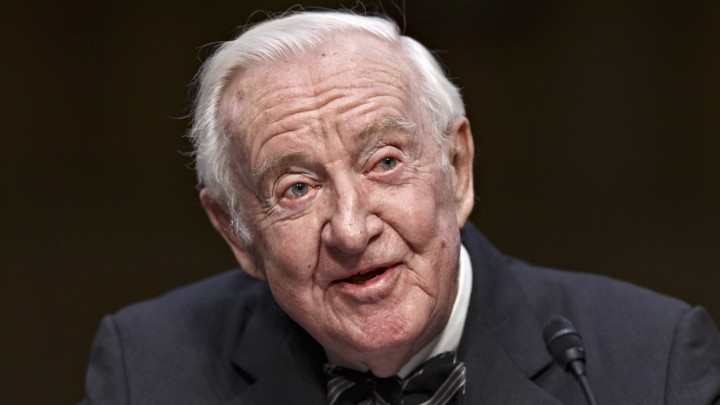Regrettably the issue has become fraught with political polarization in which one side wishes to extend ownership rights to all, while the other wishes to take them away from all. Both positions are nonsense that has prevented a balanced system been established.
First, no gun law prevents the criminal class from been so armed. The best deterrent it to double sentencing if such a weapon or any weapon is used. Knives are no joke and are often better suited to the crime.
Second, private ownership outside of mandated activities must imply immediate membership to the militia and acceptance of their training requirements. That is not unreasonable and it provides the government a body of individuals who have volunteered for armed public service as needed. We do not want guns in the hands of untrained fools.
Mandated activities can include farm pest removal using specific weapons, and collection and gun club target shooting. Clubs can supply secure lockup to members.
Militia members can be licensed and trained to handle automatic weapons. Such an organization also knows soon enough if someone is a nut case.
All this allows the ready sale and ample support for gun owners in the form of clubs. The government benefits by having an lightly organized militia to hand when needed that can readily number in the millions. Imagine organizing armed bike clubs as militia units and thus imposing a code of conduct that wins community respect.
My key point is that we can do much better and even win full popular support for sound gun laws.
For the record, i grew up with a gun in my hands as a farm boy and went through military weapons training as well and am safety trained. Safety training is way more important than any form of licensing and it also needs to be maintained as well.
The Supreme Court’s Worst Decision of My Tenure
District of Columbia v. Heller recognized an individual right to possess a firearm under the Constitution. Here’s why the case was wrongly decided. May 14, 2019
Former associate justice of the U.S. Supreme Court
District of Columbia v. Heller, which recognized an individual right to possess a firearm under the Constitution, is unquestionably the most clearly incorrect decision that the Supreme Court announced during my tenure on the bench.
Until Heller, the invalidity of Second Amendment–based objections to firearms regulations had been uncontroversial. The first two federal laws directly restricting the civilian use and possession of firearms—the 1927 act prohibiting mail delivery of handguns and the 1934 act prohibiting the possession of sawed-off shotguns and machine guns—were enacted over minor Second Amendment objections that were dismissed by the vast majority of legislators participating in the debates. After reviewing many of the same sources that are discussed at greater length by Scalia in his majority opinion in Heller, the Miller Court unanimously concluded that the Second Amendment did not apply to the possession of a firearm that did not have “some relationship to the preservation or efficiency of a well regulated militia.” And in 1980, in a footnote to an opinion upholding a conviction for receipt of a firearm, the Court effectively affirmed Miller, writing: “[T]he Second Amendment guarantees no right to keep and bear a firearm that does not have ‘some reasonable relationship to the preservation or efficiency of a well regulated militia.’”
So well settled was the issue that, speaking on the PBS NewsHour in 1991, the retired Chief Justice Warren Burger described the National Rifle Association’s lobbying in support of an expansive interpretation of the Second Amendment in these terms: “One of the greatest pieces of fraud, I repeat the word fraud, on the American public by special-interest groups that I have ever seen in my lifetime.”
Even if the lobbyists who oppose gun-control regulation actually do endorse the dubious proposition that the Second Amendment was intended to limit the federal power to regulate the civilian use of handguns—that Burger incorrectly accused them of “fraud”—I find it incredible that policy makers in a democratic society have failed to impose more effective regulations on the ownership and use of firearms than they have.
And even if there were some merit to the legal arguments advanced in the Heller case, all could foresee the negative consequences of the decision, which should have provided my colleagues with the justification needed to apply stare decisis to Miller. At a minimum, it should have given them greater pause before announcing such a radical change in the law that would greatly tie the hands of state and national lawmakers endeavoring to find solutions to the gun problem in America. Their twin failure—first, the misreading of the intended meaning of the Second Amendment, and second, the failure to respect settled precedent—represents the worst self-inflicted wound in the Court’s history.
It also represents my greatest disappointment as a member of the Court. After the oral argument and despite the narrow vote at our conference about the case, I continued to think it possible to persuade either Justice Anthony Kennedy or Justice Clarence Thomas to change his vote. During the drafting process, I had frequent conversations with Kennedy, as well as occasional discussions with Thomas, about historical issues, because I thought each of them had an open mind about the case. In those discussions—particularly those with Kennedy—I now realize that I failed to emphasize sufficiently the human aspects of the issue as providing unanswerable support for the stare decisis argument for affirmance. After all, Kennedy had been one of the three decisive votes that had saved Roe v. Wade from being overruled in Planned Parenthood v. Casey.
The enclosed memorandum explains the basis for my firm belief that the Second Amendment does not impose any limit whatsoever on the power of the federal government to regulate the non-military use or possession of firearms. I have decided to take the unusual step of circulating the initial draft of a probable dissent before [Scalia] circulates his majority because I fear the members of the majority have not yet adequately considered the unusual importance of their decision.
While I think a fair reading of history provides overwhelming support for Warren Burger’s view of the merits, even if we assume that the present majority is correct, I submit that they have not given adequate consideration to the certain impact of their proposed decision on this Court’s role in preserving the rule of law. We have profound differences over our role in areas of the law such as the Eighth Amendment and substantive due process, but I believe we all agree that there are areas of policy-making in which judges have a special obligation to let the democratic process run the show …
What has happened that could possibly justify such a massive change in the law? The text of the amendment has not changed. The history leading up to the adoption of the amendment has not changed … There has been a change in the views of some law professors, but I assume there are also some professors out there who think Congress does not have the authority to authorize a national bank, or to regulate small firms engaged in the production of goods for sale in other states, or to enact a graduated income tax. In my judgment, none of the arguments advanced by respondents or their numerous amici justify judicial entry into a quintessential area of policy-making in which there is no special need or justification for judicial supervision.
This is not a case in which either side of the policy debate can be characterized as an “insular minority” in need of special protection from the judiciary. On the contrary, there is a special risk that the action of the judiciary will be perceived as the product of policy arguments advanced by an unusually powerful political force. Because there is still time to avoid a serious and totally unnecessary self-inflicted wound, I urge each of the members of the majority to give careful consideration to the impact of this decision on the future of this institution when weighing the strength of the arguments I have set forth in what I hope will not be a dissent.In the end, of course, beating Scalia to the punch did not change the result, but I do think it forced him to significantly revise his opinion to respond to the points I raised in my dissent. And although I failed to persuade Kennedy to change his vote, I think our talks may have contributed to his insisting on some important changes before signing on to the Court’s opinion.
That’s cold comfort. I have written in other contexts that an amendment to the Constitution to overrule Heller is
desperately needed to prevent tragedies such as the massacre of 20
grammar-school children at Sandy Hook Elementary School on December 14,
2012, from ever happening again. But such tragedies have indeed happened
again. In the course of writing the chapter of my memoir that discusses
Heller, on October 1, 2017, a gunman fired from the 32nd floor
of a hotel in Las Vegas, killing at least 58 people and injuring more
than 500 more who were attending an outdoor concert. I had not yet
finished the chapter when another mass shooting occurred, this one
involving the death of 26 people—including three generations of a single
family—at a church on November 5, 2017, in Sutherland Springs, Texas.
More shootings have happened since.


2 comments:
Hey Stevens, the 2nd amendment does not say the right of the militia to keep and bear arms, it says "the right of the people." You are an intellectual joke who has no clue of the limits of your authority and purpose. By exercising your ignorant and destructive ideology by nonsensical interpretation of perfectly clear language, you have committed treason. A Grand Jury needs to deal with you.
1 Read U.S. v Miller. It was a challenge to the NFA which did not ban short barreled rifles and shotguns as well as machineguns. It taxed them and instituted a background check. Miller did not get the check or pay the tax.
2 Miller was a one sided argument. No one showed up to argue in defence of Miller, which could have easily shown short barreled shotguns use in military applications.
3 The decision was very narrow, and if short barreled shotguns have no use in military applications, the M4 select fire short barreled rifle used in the military today, it does. So reading Miller, it's clear to me, we can have one. Right?
Post a Comment